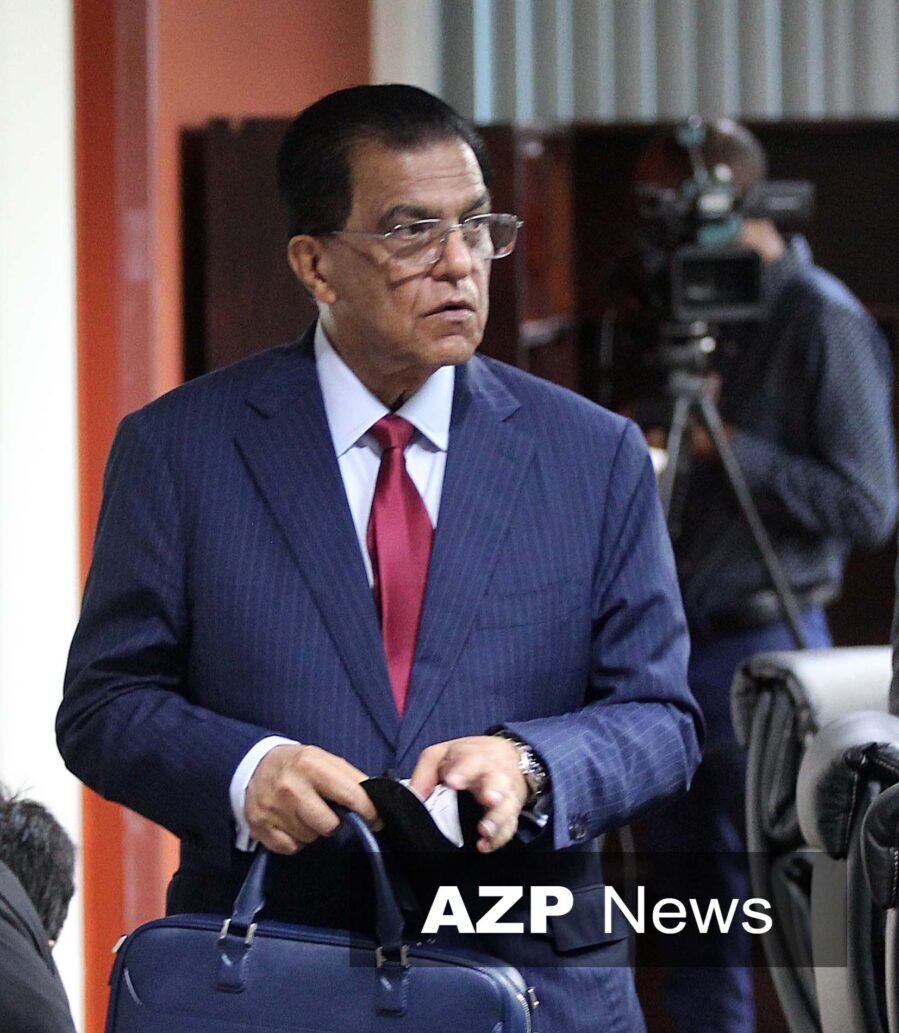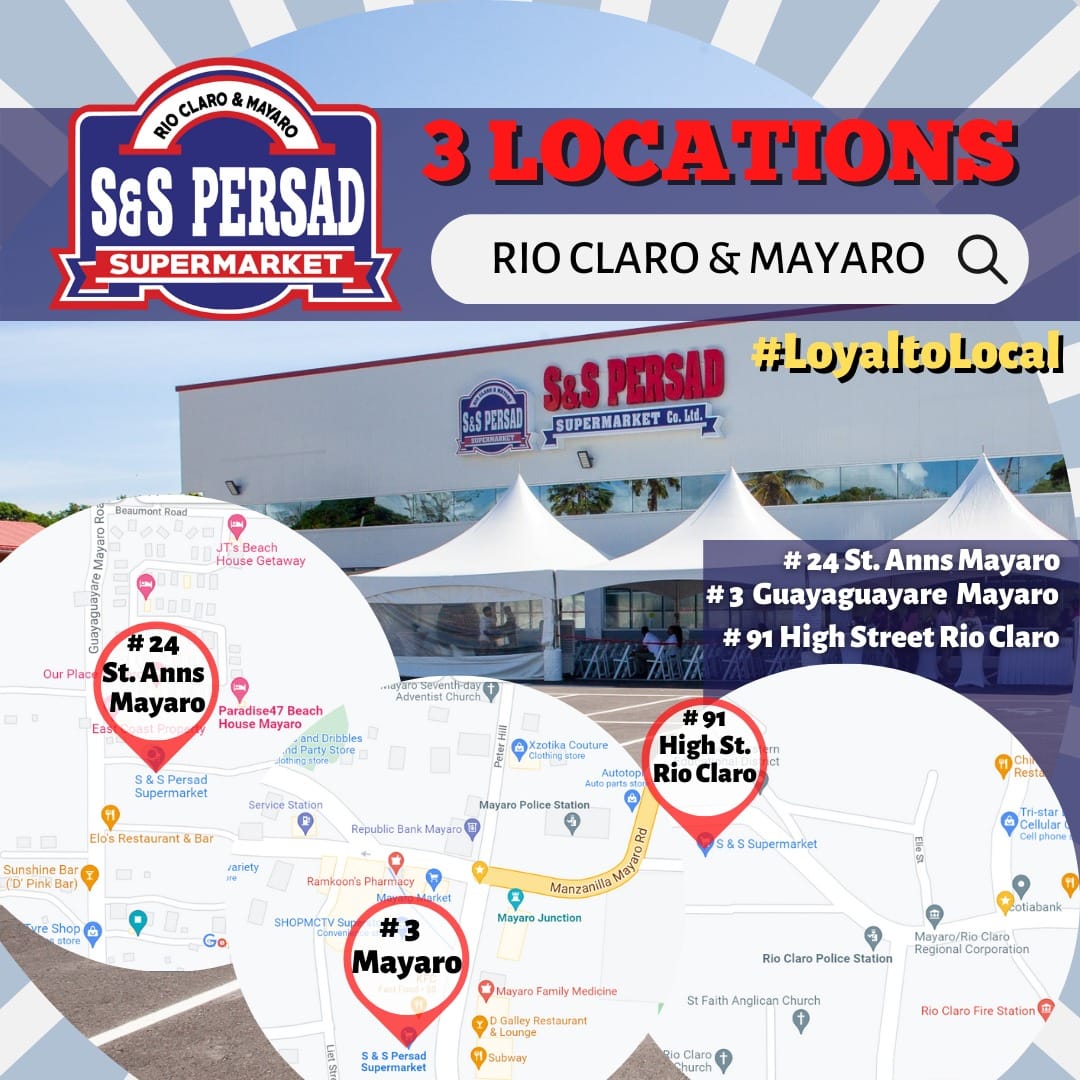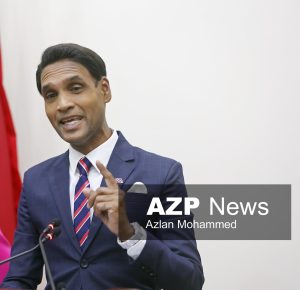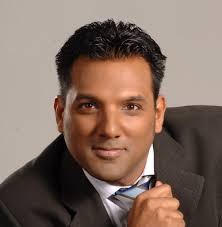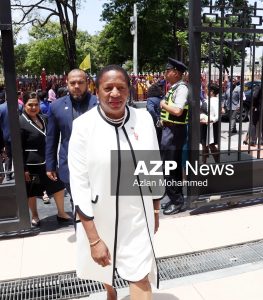‘This was not a case where oil was escaping. This is a case where men were in a pipeline…’ Ramesh Lawrence Maharaj
By Sue-Ann Wayow
STATE-owned Paria Fuel Trading Company Ltd cannot distance itself from the responsibility and duty of care to ensure that persons employed via subcontract were conducting duties in a safe manner regardless of the entities involved.
This was stated by counsel to the Commission of Enquiry (CoE)Ramesh Lawrence Maharaj, SC, in his closing statement on Friday.
He also said, “Both Paria and LMCS have a joint concurrent duty of care to ensure that the works which were inherently dangerous were carried out safely.”
This he maintained throughout his submission that both companies failed to identify a latent hazardous Delta-P situation eventually causing the deaths of Fyzal Kurban, Yusuf Henry, Kazim Ali, Jr, and Rishi Nagassar, all LMCS employees,, who were sucked into the pipeline located at Paria’s Berth #6 on February 25, 2022.
CoE’s chairman Jerome Lynch, KC, questioned the legal obligation of Paria to attempt a rescue apart from a moral obligation and asked if the CoE finds that there was no care of duty at the onset, if there should be continuing one as put to the CoE by Maharaj.
Maharaj explained that as Site Authority, the ultimate care and duty lay with Paria especially as LMCS had persons volunteering to do a rescue by diving into the pipeline but were not permitted by the Site Authority.
He further explained, “It would seem to me that the law would be impotent if in a situation like this, there would not be a duty of care in those circumstances to say that Paria had a duty. What has happened is that Paria took the responsibility that that is LMCS responsibility, they had to come up with a plan, they had to do it but Paria took the position…
“The facts are that they did not even consult them. They didn’t even talk to them to find out what is the plan. They didn’t get an expert to assess this plan to see whether it could be done.”
Maharaj said, “This was not a case where oil was escaping. This is a case where men were in a pipeline and it is in that context I say that even if it is not a continuing duty or if even if it is found that there was no duty of care from the beginning, at the time when the incident occurred and it’s on Paria’s property, in the circumstances of this contract, there was an implied duty of care.”
Lynch asked, “But a continuing one, not a separate duty of care that arises only at a rescue?”
Maharaj responded, “If it is that there is not an initial duty of care and the tribunal find that as a matter of law, it cannot find that, notwithstanding that, I am submitting as a matter of legal principles to the Commission that where according to this contract, Paria is the Site Authority, Paria was responsible, jointly responsible with LMCS for this incident to occur, for this accident to occur.”
Using an example, Lynch said in Trinidad and Tobago and other countries if someone was drowning at the feet of another, that person had no legal obligation to rescue that person and neither was it civil wrong.
Maharaj agreed.
Lynch asked, why does not that apply to Paria.
In saying that it was his duty to advise the Commission as best he could, Maharaj said it was not a case where some-one was drowning in a public place.
“This is a case where there is contract,” Maharaj said.
He added that through the contract, Paria was to ensure that an emergency response plan was put in place.
Lynch then asked if it was a breach of contract.
Maharaj said because of breach of contract the issue arose as to whether Paria had a duty to do anything.
“Paria is in charge of the compound. Paria could prevent persons trying to save the lives of these people. Paria exercised that right and therefore if it is shown that it was grossly reckless or negligent for Paria to do that, then in my respectful submission they had a duty,” Maharaj said.
Lynch asked if Maharaj had an Authority for that proposition to which he said not in person with him but could be supplied to the CoE.
Lynch said he would like to see such an Authority.
He also suggested that anyone willing to make similar submissions, to do in writing.
Making it clear that it was not an order for anyone to make submissions regarding that issue, Lynch set a January 30 deadline to receive those submissions.
“If there are submissions in that respect, I would like to see what law there is to support such a proposition because I am troubled by it,” Lynch said.
Maharaj also submitted that if Paria wanted information concerning the pipeline’s conditions, they could have gotten that from either Christopher Boodram when he emerged from the pipe or Michael Kurban who dived into the pipe afterwards instead of waiting hours for a camera.
He said that applicant for the job Kenson maintenance technician Houston Marjadsingh failed in his duty and did not properly supervise the execution of the works conducted nor did he have the competency to do so.
“In fact he did not monitor the works at all. He only arrived there at 2 pm,” he said referring to the February 25th date.
All LMCS’s documents including method statements, risk assessments, job hazard analysis and emergency response plan submitted for the works to be conducted at Sealine Riser No.36 between Paria’s Berths #5 and 6 were accepted by Paria’s multi-departmental team.
Paria had maintained throughout the CoE that it did not have the specialty expertise to carry out the job itself and therefore relied upon the contractor to provide expertise, knowledge and competency to carrying out the tasks.
However, Maharaj said, “It is no defence for Paria to say, “ we didn’t have the competence to do it.” If they didn’t have the competence to do it, Paria had a duty both under the rules and under the common law duty to get an expert.”
He also said, “I must confess, this has always concerned me. If a company does not have the competence to do the works or to assess the works, how could you accept these documents without getting an expert to review them on your behalf?”
“Paria on its own did not do a genuine review of LMCS documents and Paria on its own admission relied exclusively on the specialist expertise of LMCS to identify the safety risks.”
As a result both Paria and LMCS “ got it totally wrong,” Maharaj said.
“Yes” Lynch agreed.
“And since Paria did not have the expertise, it rubber stamped the error,” Maharaj added.
Maharaj also said, “Paria did not take the steps to have a client representative engineer expert to advise it in reviewing the LMCS documents before acceptance. Paria is in breach of the PTW rule and also in breach of the principle of the common law referred to above.”
![]()


